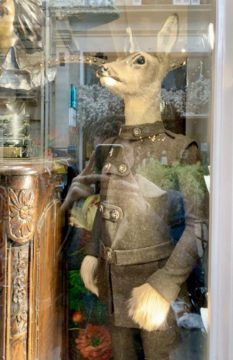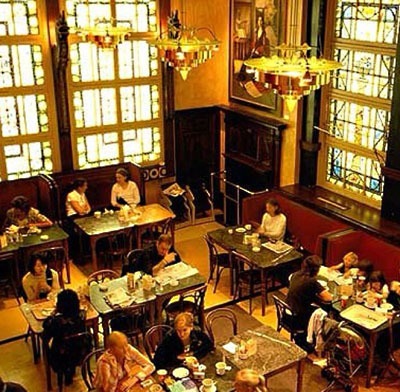by Ethan Seavey
 Every hour of every day I hear the pulsating rush of le Periph and I am reminded that Paris is dead. My dorm is at the very bottom of Paris such that if the city were a ball I’d be the spot that hits the ground. I sit in my windowsill. I watch cars drive on the highway in an unending flow, like blood in veins, fish in streams, but they’re all metal idols of life. Life does not go this fast. Life stops to take a rest.
Every hour of every day I hear the pulsating rush of le Periph and I am reminded that Paris is dead. My dorm is at the very bottom of Paris such that if the city were a ball I’d be the spot that hits the ground. I sit in my windowsill. I watch cars drive on the highway in an unending flow, like blood in veins, fish in streams, but they’re all metal idols of life. Life does not go this fast. Life stops to take a rest.
It seems to me that Paris died forty years ago and is now taxidermic like the fawn I saw guarding an antique shop in the 9th arrondissement. Someone must have prepared the fawn’s body to be preserved, then sewn a tailored military uniform for its cartoonish appearance. Through the window it looks perfectly reanimated and proud to be enlisted in the French infantry. Up close it’s just dusty and reminds me that it has been dead for a long time.
Something stopped in Paris in the 1980s. I think it happened when Parisian food stopped developing. You love French food until you live in Paris and then you decide you can’t have another meal of meat, cheese, butter and bread. A waiter in a French café will serve you a brown omelette, ignore you until you’ve properly begged for the check, and proceed to charge you 14 euros. Paris is proud of its food. They won’t change it any time soon. Read more »

